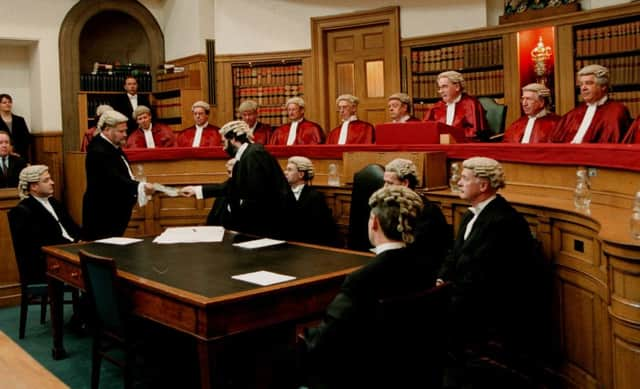Raising the bar as far as conferences go


Next week, the Faculty of Advocates hosts the World Bar Conference. This is the biennial conference of ICAB, the International Council of Advocates and Barristers – an organisation to which the independent referral bars from around the world belong. ICAB was founded in Edinburgh in 2002; and we will welcome back to Edinburgh colleagues from Australia and New Zealand, South Africa, Namibia, Zimbabwe, Hong Kong and the Republic of Ireland, as well as from England & Wales and Northern Ireland.
What is an independent referral bar? It is a recognised and organised bar of independent advocates and barristers – specialists in oral and written advocacy and skilled legal advice – which forms a distinctive part of the legal profession. Advocates and barristers generally act on the instructions of other professionals. As will be evident from the countries listed, independent referral bars exist in diverse jurisdictions. In each of the jurisdictions represented in ICAB, the courts rely heavily on the skill and expertise of the advocates who appear before them – not only to enable them to do justice in individual cases, but to assist them in articulating and developing the law. Advocacy is a specialist professional skill which imposes specific ethical and practical demands. Experience in our different jurisdictions has shown that the bar provides an environment which fosters excellence in these specialist professional skills.
Advertisement
Hide AdAdvertisement
Hide AdAlthough we practice in different parts of the world, all the members of ICAB have a common commitment to the responsibility of the independent advocate in maintaining the rule of law and promoting access to justice. We also share professional values – including the key professional virtue of independence, and the cab-rank rule, which obliges an advocate, like a taxi, to accept instructions within the advocate’s field of competence and regardless of the advocate’s personal views about the character of the client or the client’s cause. This is a rule which underpins access to justice for all in our society. It was first articulated in Scotland in 1532, and is recognised by all the independent referral bars.
The conference, from 14-16 April, will be opened by Scotland’s new Lord President, Lord Carloway, and closed by the President of the UK Supreme Court, Lord Neuberger. Between their addresses, the conference will touch on various subjects. One way or another, most of the topics relate to the role which the bar plays in underpinning democracy – through the bar’s work in supporting the independence of the judiciary, in providing access to justice and in promoting human rights. These are not platitudes. During the conference, we will hear from lawyers whose professional commitment has been tested in difficult circumstances. And we will discuss the challenges which many societies today face in getting the balance right between freedom and security, as technology facilitates a level of state surveillance which would, until recently, have been unthinkable.
We will consider other matters of current interest to the legal profession. We will hear from Professor Yarrow, an economist who has written on the important role which the legal infrastructure of any society plays in underpinning economic success; from Professor Richard Susskind, an expert on the impact of technological change on the professions; and from Justice Frank Clarke, a judge of the Irish Supreme Court, on the importance to appellate courts of skilled advocacy. We will think about how we maintain and promote a vigorous and diverse profession – not for its own sake, but because of our fundamental belief in the importance to the societies which we serve of a highly skilled and diverse profession of advocates.
The benefits of a conference such as this lie not only in the substance of the topics which we discuss, valuable though they are. For most of the time, as practising lawyers, we rightly focus intensely on the immediate concerns of those whom we represent. There is a risk that we lose sight of the broader purposes which the law and the legal profession are there to serve. A conference such as this gives us the opportunity to connect our daily work to the fundamental values which animate and give purpose to the legal profession. It gives us the chance to meet colleagues from other countries, to compare and contrast, and to learn from them. It reminds us that, although we serve a particular society, we are part of a wider international legal community, with which we have much in common, and in which we in Scotland play our full part.
• James Wolffe, QC, Dean of the Faculty of Advocates
SEE ALSO